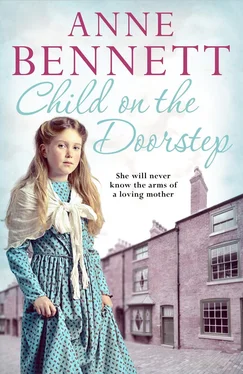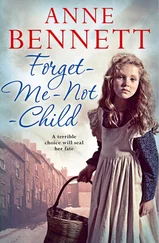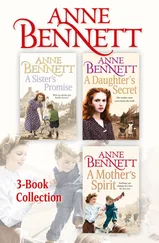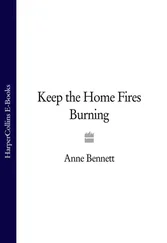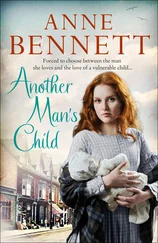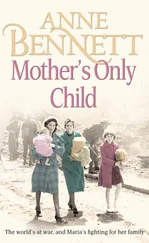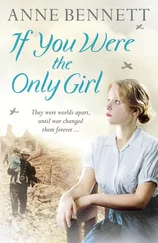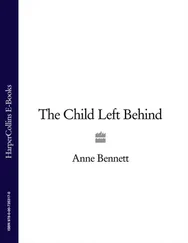At least she had Connie, though, who she loved with all her heart and soul, while poor Maggie had nothing. Angela had pushed all the awful memories away. Better to focus on the present and Connie’s future.
Maggie was grateful for the chance of employment at the Swan and took herself off to see Mr Larkin. They got on fine and the upshot was that she was to take on the weekend cleaning, while Angela worked behind the bar.
In fact Paddy felt it was scandalous that two women, one a widow and one with a disabled husband, should have to take on jobs like the ones he was offering to keep the wolf from the door.
‘Those men fought for King and country, both of them,’ he said to his wife one night as they prepared for bed. ‘You’d think their relatives would be taken care of if they were killed like Barry McClusky, or crippled like Maggie’s husband, or Pete Lawson, blinded, and so many more.’
‘You’ve just said it though, haven’t you?’ Breda said. ‘So many more. Think about it, there were thousand upon thousand killed and even more injured. I should think it takes a great deal of money to fight a war and so they haven’t got the money to provide adequately for all the dependants.’
‘And since when have the government cared about the likes of us anyway?’ Paddy said morosely. ‘Cannon fodder, the common people are.’
‘That’s about the shape of it,’ Breda said. ‘And people do what they can to survive. And now Maggie doesn’t have to make a decision this winter whether to order another hundredweight of coal or buy the makings for a dinner, and neither does Angela, so at least we have made two of those dependants happier.’
‘And that’s all we can do, I suppose.’
‘It is,’ Breda said decidedly. ‘Now come to bed and stop fretting about things you can do nothing to change.’
As Angela worked, whether it was pulling pints behind the bar or cleaning, she was always well aware of what she owed Mary, for without her stalwart help in caring for Connie, she knew their lives would have been financially harder. But she didn’t just appreciate Mary for the help she gave but she was glad she was there with them. She had been part of her life since as far back as she could remember and she hadn’t a clue how she was going to manage without her. And though Mary might have years to live yet, she somehow doubted it. The news of Barry’s death had hit her for six, combined with the death of two of her other sons in 1912 as they had travelled to America on the Titanic to seek better prospects, and the grief had done much to hasten the death of her husband. The bad times were wearing her down and Mary hadn’t the resilience of youth.
It wasn’t all bad. Mary still thought a great deal about her other two sons in America who had gone ahead some years before the Titanic disaster, and she was glad they were so happy in their new lives. She often wished she could see them again just the once, but she had known when she kissed them goodbye it was final. They wrote regularly though, and she was grateful for that, especially when they included dollar bills folded inside the letter. They wrote about things she could barely imagine, like the flashing neon lights in a place called Times Square and the trolley buses and the trains that ran underground in the bowels of the earth and the motor cars they helped build that were now filling the wide straight roads of America.
And they wrote of their marriages – for Colm had followed his brother Finbarr and married a Roman Catholic girl – and sent pictures of their weddings. But Mary could barely recognise her sons and their wives, and the babies born later were like the photographs of strangers, names on a page, and sometimes she was heart-sore knowing that she would never hold her sons’ children in her arms and take joy in them. Connie helped there, for she still had to be looked after, and Mary knew Connie loved her with a passion that eased the pain in her heart.
As Connie grew up, she became very good friends with a girl in her class called Sarah Maguire. Angela had no problem with her having Sarah as her special friend as she herself had been best friends with Maggie Malone, née Maguire, at a similar age. She was friendly with Sarah’s mother Maeve and knew them to be a respectable family and was glad to see Connie making friends of her own. It wasn’t as if she’d be all that far away in any case, for the Maguires lived just a wee bit down Bell Barn Road on the corner of Great Colmore Street.
The Maguire home was so different from Connie’s – although cramped and noisy it was filled with a vibrancy and vitality often lacking in her own. She liked them all, even Sarah’s parents. She saw little of Mr Maguire but what she saw she liked. He was called James and his eldest son, wee Jimmy, was named after him. He had big swollen muscles that often strained against the fabric of his shirts, which he usually wore folded up to the elbow so that his lower arms looked like giant hams, and led to large, red, gnarled hands. His face was equally red, with his nose sort of splashed against it and his wide, generous lips tilted upwards so it looked as if he was permanently smiling. He did smile a lot anyway and laugh, and a full-throated and very infectious laugh it was too. Added to this he had a fine head of brown hair which was sprinkled only lightly with grey.
Mrs Maguire, Maeve, had an equally dark head of hair though it was always tied away from her face in a bun of some sort. She wasn’t as pretty as Connie’s own mother – few people were – but Maeve Maguire’s face had an almost serene look seldom seen on those with a houseful of children. Connie had never heard her raise her voice and Sarah said she almost never did. So her face had a contented look about it, with no lines pulling her mouth down, although there were creases around her eyes which were a strange grey-green colour.
‘Do you mind me coming round so often?’ Connie asked her once. ‘My granny says I mustn’t annoy you.’
Mrs Maguire gave an almost tinkling laugh. ‘Child dear, you don’t annoy me in the slightest,’ she said. ‘You are like a ray of sunshine. And anyway, when you have so many, one more makes little difference and there is more company for you here. The children’s friends are always welcome and you help Sarah with the jobs she must do, so you must assure your granny you are no trouble.’
Maeve Maguire had hit the nail on the head, for Connie, though she loved her mother and grandmother dearly, was often lonely. There was something else too. Sometimes her mother seemed far away. She was there in person but when Connie spoke, she sometimes didn’t answer, didn’t seem to hear her and her eyes had a faraway look in them. She had asked her grandmother about it and Mary had said that her mother was still remembering her daddy, Barry.
‘You said that when I asked you why she was sad at Christmas.’
‘Yes. She’s remembering then too.’
‘But, Daddy didn’t die at Christmas.’
‘No, but Christmas is a time to remember loved ones, especially those you might not see again,’ Mary had said and added, ‘Don’t you feel the same when you remember your daddy?’
Connie didn’t; in fact, if she was absolutely honest, she didn’t remember her daddy at all, just the things people had told her about him. But even though she was a child she had known her granny would not like her to share those thoughts and so she contented herself by saying, ‘Mmm, I suppose.’
So she went for company to Sarah and the Maguire house. They sat together at school and met often on Saturdays and holiday times and on Sundays at Mass.
‘Beats me how you don’t run out of things to say,’ Angela commented dryly as they sat down for an early meal before she went to serve behind the bar one Saturday evening.
Читать дальше
